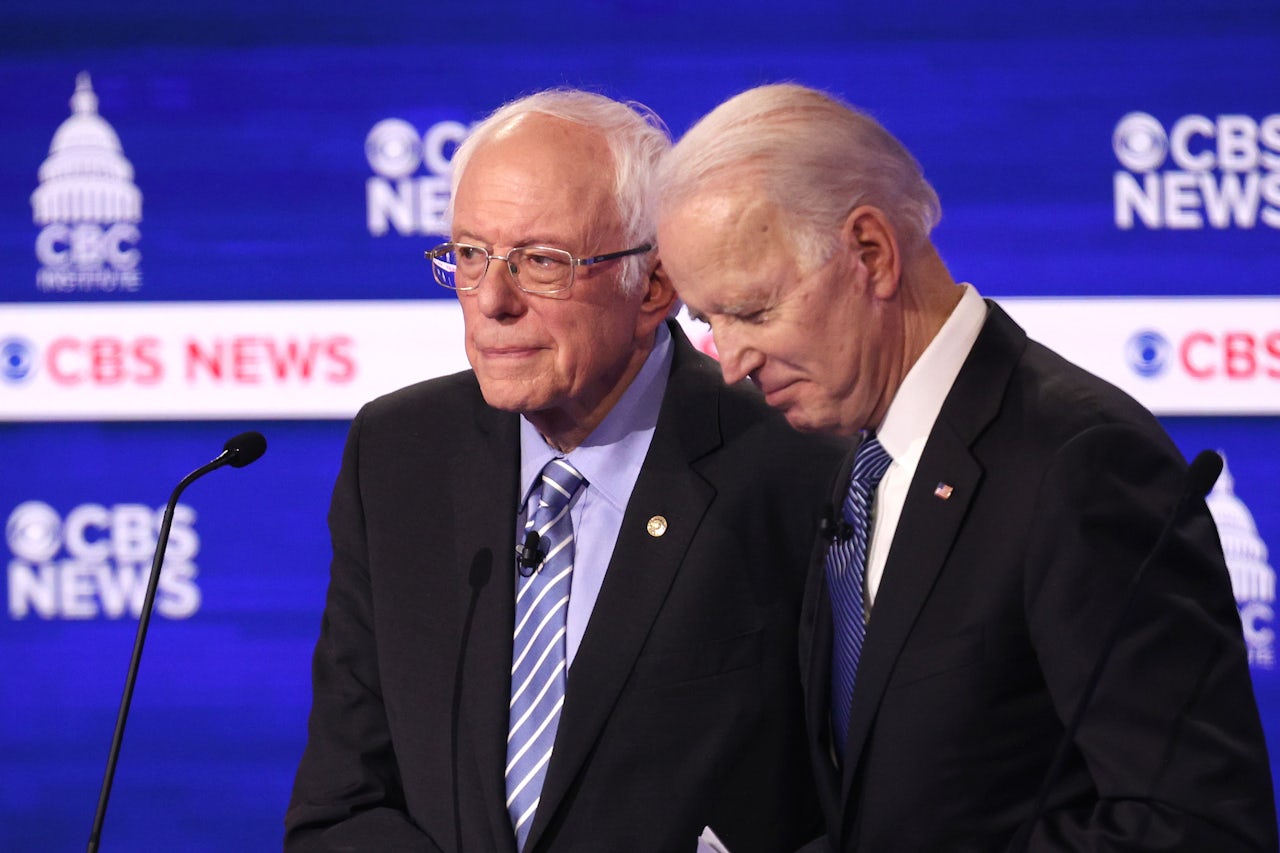The Democratic primaries are not yet over, despite the consensus at which the mainstream media — and to be fair, a lot of regular people — have arrived. Sen. Bernie Sanders and former Vice President Joe Biden are separated by just 154 delegates, with half the contests yet to take place; an upcoming televised debate could stymie Biden’s momentum if he appears, uh, less than prepared; the intensifying coronavirus pandemic and financial crisis might radically reshift the electoral mood, just as the 2008 financial crisis swung all the momentum to former President Barack Obama (though that happened in the general election, after the nominees had been decided).
But they could be over in a week or two, if none of that matters and Biden continues mopping up the vote, forcing Sanders supporters like myself to make a hard decision. Do they perfunctorily switch over their votes to the Democratic establishment candidate? (Statistically speaking, the vast majority of Sanders voters went for former Secretary of State Hillary Clinton in 2016; anecdotally speaking, no one I knew did it with any enthusiasm.) Do they suck it up and go all in for Biden, boosting his candidacy with the same zeal they did Sanders’s in order to avoid a repeat of 2016? Do they bow this one out altogether? Do they cast their vote for a third party candidate, in protest of the choices?
In 2016, when it was assumed by virtually everyone — including President Donald Trump himself — that Clinton was going to win, all of these seemed like reasonable options. In particular, I knew plenty of smart people who publicly announced that they were voting for Hillary but doing so reluctantly, because blah blah blah, as well as a handful who went for third-party candidates like the Green Party’s Jill Stein or (gulp) former New Mexico Gov. Gary Johnson, a libertarian. I admit I talked like this, because I thought there was no way I could be wrong. But in 2020, after four years of an onerous, stressful, dispiriting, and scary Trump presidency, everyone should know better. I’d like to think even the most stubborn leftist, when stared in the eye and asked to drop the rhetoric, would begrudgingly admit that a Hillary Clinton presidency, for all its probable disappointments and centrist concessions, would’ve been vastly better than Trump’s.
It’s not just that it’s too early in the campaign to entertain this idea; it will always be too early.
Here are two obvious examples. Currently, Trump’s institutional incompetence has allowed the preventable coronavirus crisis to sprawl to the brink of outright disaster, with the federal government’s response delayed for weeks due to bureaucracy and intentional decimation. His subsequent statements have provided no confidence whatsoever about the government’s ability to regroup on the fly, and the crisis will probably get even worse in the coming weeks. Then there are his myriad awful actions — like pursuing a xenophobic travel policy, taking apart federal infrastructure to the point at which it is not equipped to handle any crisis (coronavirus or not), or rolling back protections for LGBT+ people — but most partisanly and likely to ripple for generations, installing dozens of hardcore and dangerously underqualified conservative judges to lifetime positions, including in the Supreme Court.
Hillary wouldn’t have hollowed out the government, or put two nakedly partisan right-wing justices on the Supreme Court. Biden wouldn’t, either. (Obama, under whom Biden served, did not — he also didn’t fuck up his response to a burgeoning pandemic.) He might do plenty of horrifying shit (I shudder at the future promise of a “more humane” droning and deportation policy), but on this — and plenty of other issues — he would be obviously better, even if you hate him. A frequent refrain I heard from smart people is something like, “you can’t ask me to choose between a bad option and a worse option.” Actually, we can: If it’s between a bad option and a worse option, you pick the bad option. That’s politics. Yes, failing to diagnose the root problem of America’s systemic rots may lead to a worse Trump down the line. But we actually have Trump now, and another four years will further imperil millions of people around the world and at home. Even the most pessimistic forecasts about a Biden presidency do not plunge past the depths Trump has already displayed.
Perhaps if you live in a state that will certainly go for the Democratic nominee — like New York, or Illinois — it feels more acceptable to not vote, as a private or public declaration of how moral and correct you are. Cool. But the cumulative effect of this intentional distancing — a refusal to engage with this pressing issue that affects basically everyone and everything alive — is the type of psychic malaise that will only aid Trumpism. The powers that be are counting on your apathy — your belief that things can��t get better, that a personally healthy choice is to opt out. But, I am sorry to say, a cost of living in the world is living in it. (Also very obviously, you wouldn’t want any Biden supporter to hold out if Sanders is the nominee, as may yet still happen.)
It’s not just that it’s too early in the campaign to entertain this idea; it will always be too early. Electoral politics force a subsuming of individual ego in service of the greater good — this is why Sanders endorsed and campaigned for Hillary in 2016, and why he will certainly endorse and campaign for Biden in 2020, if it comes to that. Inasmuch as he’s inspired millions of people to strive for something better, this should not be returned with a petulant refusal to engage with reality as much as he has. The stakes are just too high.
